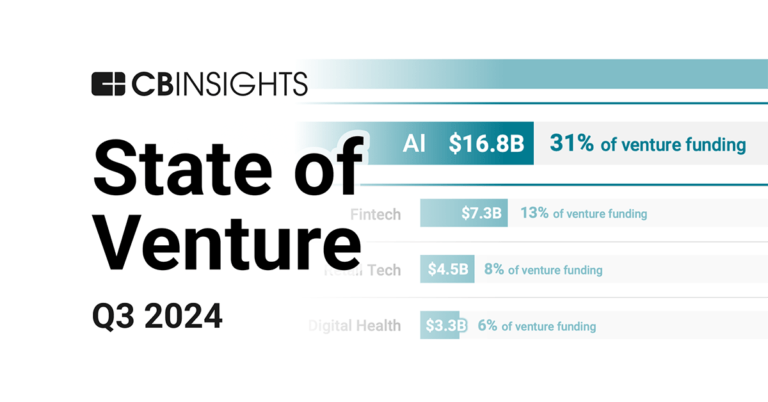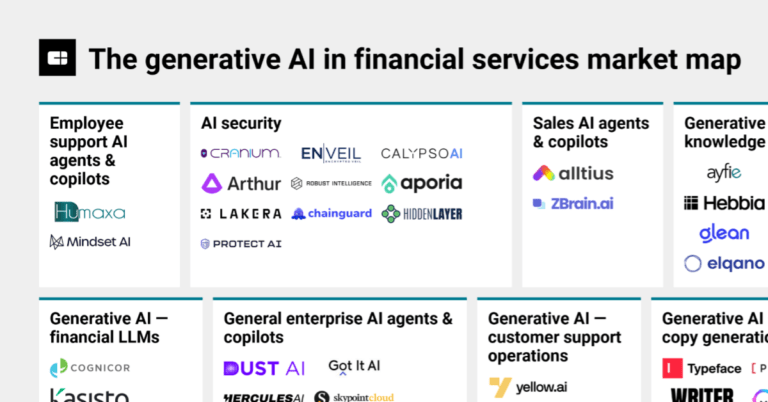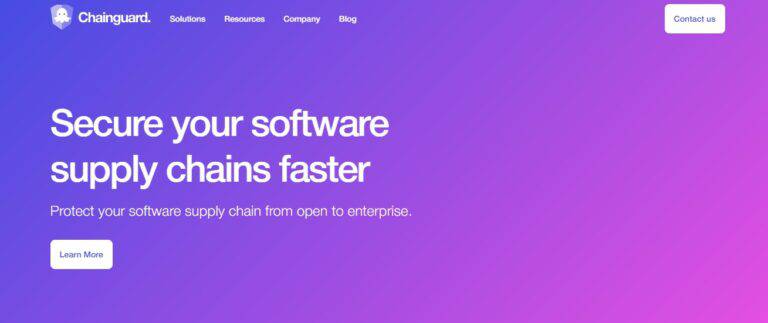
Chainguard
Founded Year
2021Stage
Series C | AliveTotal Raised
$256MValuation
$0000Last Raised
$140M | 8 mos agoMosaic Score The Mosaic Score is an algorithm that measures the overall financial health and market potential of private companies.
+50 points in the past 30 days
About Chainguard
Chainguard specializes in fortified software delivery within the cybersecurity sector. The company offers hardened container images designed to reduce attack surfaces and integrates tools for vulnerability remediation, compliance, and risk mitigation. Chainguard's solutions cater to the needs of developers and organizations aiming to secure their software supply chains and maintain open-source software security. It was founded in 2021 and is based in Kirkland, Washington.
Loading...
ESPs containing Chainguard
The ESP matrix leverages data and analyst insight to identify and rank leading companies in a given technology landscape.
The AI security market provides solutions designed to protect machine learning models and algorithms from adversarial attacks, data poisoning, model evasion, backdoor injections, and other cyber attacks. Vendors offer a range of products, including intrusion detection systems, adversarial defense systems, secure machine learning frameworks, and anomaly detection tools.
Chainguard named as Leader among 15 other companies, including Weights & Biases, HiddenLayer, and Lakera.
Loading...
Research containing Chainguard
Get data-driven expert analysis from the CB Insights Intelligence Unit.
CB Insights Intelligence Analysts have mentioned Chainguard in 3 CB Insights research briefs, most recently on Nov 7, 2024.

Oct 3, 2024 report
State of Venture Q3’24 ReportExpert Collections containing Chainguard
Expert Collections are analyst-curated lists that highlight the companies you need to know in the most important technology spaces.
Chainguard is included in 4 Expert Collections, including Cybersecurity.
Cybersecurity
10,544 items
These companies protect organizations from digital threats.
Unicorns- Billion Dollar Startups
1,270 items
Supply Chain & Logistics Tech
4,332 items
Companies offering technology-driven solutions that serve the supply chain & logistics space (e.g. shipping, inventory mgmt, last mile, trucking).
Artificial Intelligence
7,221 items
Latest Chainguard News
Mar 19, 2025
Dustin Kirkland's daughters, who are 11 and 12, were able to get around parental settings. They each identified a vulnerability in the technology and submitted a report to Google. His younger daughter was awarded $5,000 for her discovery. This as-told-to essay is based on a conversation with Dustin Kirkland , vice president of engineering at Chainguard . It has been edited for length and clarity. I'm the vice president of engineering at a company focused on providing security for the software supply chain. I used to work at Google and have had a long career in tech, so I'm very security-minded. Because of that, I was fairly confident in managing the technology that my daughters, who are 11 and 12, have access to. Our family only uses Android products because I trust Google's security more than I trust most other companies. I set parental controls on apps and use time limits. I'm also a realist. My girls also have iPads through school , and I know they can easily connect to the internet. Still, I didn't expect them to get around my security controls quite as easily as they did. And I definitely didn't expect them to turn their discovery into thousands of dollars. My older daughter was overriding her time limits for months Last year, I noticed that my older daughter, Camille, was spending a lot of time on her tablet. I would adjust the time limits and settings, only to have them default to a more lax setting. I was really frustrated, thinking there was a bug in the system. Yet, her sister's time limits were working just fine. This went on from January until May. When I finally said something, Camille got a sly look on her face. Then, she showed me how she was overriding the controls , giving herself parental access to her tablet. Once she had parenting settings, she could do whatever she wanted. We had a long talk about responsibility with tech. I even called a friend at Google and had him talk to Camille so she was hearing from someone other than her parents. Then, I made Camille sit down and write a security vulnerability report to submit to Google. My younger daughter wanted to find a vulnerability too Not-so-secretly, I was very proud of Camille. She's always been good at spotting problems and weaknesses. She was the baby who could immediately find an escape from where you put her. Google accepted her report and gave her $500 for the tip. I'll admit, I bragged to friends and family about Camille identifying the security risk . Each time I did that, my younger daughter, Corinne, would seethe. She's very competitive, and she vowed that she would find a vulnerability, too. I would encourage her, but I wasn't holding my breath. She found a TV vulnerability that paid more About two months later, Corinne called me over to one of our televisions. We use Chromecast to stream , and each TV defaults to a children's profile. To access the parent profile, we needed to enter a code. At first, I thought Corinne was going to tell me that she guessed our code. Instead, she showed me that if she clicked the home button rapidly, the TV would override the code input and give her access to the parent profile. Corinne had found the vulnerability she was looking for. Just like her sister, she filed a report with Google. This time, the company awarded her $5,000. She was thrilled. The experience was a good conversation starter Camille wanted to put her money into a brokerage account, and Corinne followed in her footsteps. Maybe they'll use the money for their first cars in a few years. Both girls like wearing hoodies that say "Bug Hunters" that Google provided them. Finding the vulnerabilities also encouraged them to think about the potential dangers of unfettered access to the internet. In her bug report, Camille wrote that other kids could "learn bad words and maybe get nightmares" if they overrode parental controls. Corinne said that kids who stumbled upon TV shows for adults would "maybe get scarred for life." They've internalized that they're not supposed to take advantage of technology's vulnerabilities and learned how to be good digital citizens. That's worth even more than the money. Read the original article on Business Insider
Chainguard Frequently Asked Questions (FAQ)
When was Chainguard founded?
Chainguard was founded in 2021.
Where is Chainguard's headquarters?
Chainguard's headquarters is located at 810 7th Street South, Kirkland.
What is Chainguard's latest funding round?
Chainguard's latest funding round is Series C.
How much did Chainguard raise?
Chainguard raised a total of $256M.
Who are the investors of Chainguard?
Investors of Chainguard include Amplify Partners, Sequoia Capital, MANTIS Venture Capital, Spark Capital, Lightspeed Venture Partners and 15 more.
Who are Chainguard's competitors?
Competitors of Chainguard include Legit Security and 6 more.
Loading...
Compare Chainguard to Competitors

Ox Security specializes in software supply chain security solutions. The company offers services that help manage security risks in the software development process, including automating protective actions, managing security findings from a single location, and ensuring the security and integrity of all cloud artifacts. It primarily serves the software development and cloud computing industries. It was founded in 2021 and is based in Tel Aviv, Israel.

GitGuardian specializes in secrets security and non-human identity governance within the software development lifecycle. The company provides solutions for detecting hardcoded secrets, monitoring public code repositories, and securing software supply chains. It primarily serves the security sector. The company was founded in 2017 and is based in Paris, France.

Myrror Security specializes in software supply chain protection within the cybersecurity domain. The company offers a solution that detects and prevents attacks during the development process, particularly those originating from third-party sources, to maintain product security and prevent the spread of malicious activity. It primarily serves the cybersecurity industry. Myrror Security was formerly known as BlindSpot Security. It was founded in 2022 and is based in Tel Aviv, Israel.

Mend.io focuses on application security. It provides tools to manage application risk across various domains. Its main offerings include automated dependency updates, open source security management, proprietary code security, and risk analysis for AI models. Mend.io serves sectors that require application security measures, such as software development and IT security. Mend was formerly known as WhiteSource. It was founded in 2011 and is based in Givatayim, Israel.

Aikido develops a cloud security platform. It aims to prevent security issues and resist malware attacks. It scans and monitors the open-source dependencies in the codebase for known vulnerabilities and risks and helps secure the supply chain. The company also integrates with major cloud providers to detect risks that can make cloud infrastructure more susceptible to attacks. It was founded in 2022 and is based in Ghent, Belgium.
Binarly specializes in firmware security and supply chain risk management within the cybersecurity industry. The company offers an AI-powered platform that detects and remediates known and unknown vulnerabilities in firmware and software supply chains. Binarly's services are designed to provide visibility into firmware and software vulnerabilities, identify malicious code, and offer prescriptive fixes for rapid resolution. It was founded in 2021 and is based in Santa Monica, California.
Loading...


